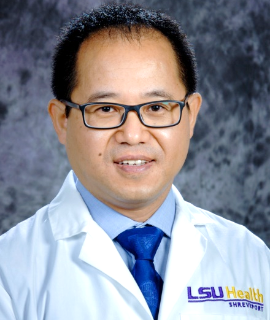Title : Modeling Neurological Diseases Using Patient-derived Neurons
Abstract:
The limited access to human neurons greatly impedes the progress of research in neurological diseases. Although animal models provide insights into disease mechanisms, significant species-dependent differences exist, and animal models only mirror the limited aspects of the pathophysiology of human diseases. It is believed that these species-dependent differences caused the high failure rate in clinical trials that have been derived from successful results in animal models. Excitingly, reprogramming of human neurons from adult fibroblasts overcomes this limitation and provides an unprecedented approach in deciphering the molecular pathogenesis underlying neurological diseases. Recently, we have reported two techniques for the generation of patient-specific neurons. One is the direct conversion from patient fibroblasts using lentiviral delivery of transcription factors, and the second method is induced pluripotent stem cells (iPSCs)-based induction and differentiation. Using different combinations of reprogramming factors, different neuronal subtypes could be generated, such as generic neurons (iGNs), motor neurons (iMNs), and cholinergic interneurons (iChINs). We modeled the movement disorder DYT1 dystonia using patient-specific neurons and recapitulated the disease-dependent cellular deficits, including deformed nucleus, impaired neurodevelopment, disrupted nucleocytoplasmic transport, and the unexpected finding of nuclear Lamin B1 mislocalization. This study provided the novel insights into the pathogenesis of dystonia and revealed the high value of patient-derived neurons in modeling neurological diseases.
What will audience learn from your presentation?
- Two novel techniques for the generation of patient-specific neurons.
- The generation of different neural subtypes via different reprogramming factors.
- The differences and similarities of directly converted neurons and iPSC-derived neurons in modeling neurological diseases.
- The novel insights into the pathogenesis of DYT1 dystonia in patient-specific neurons.




